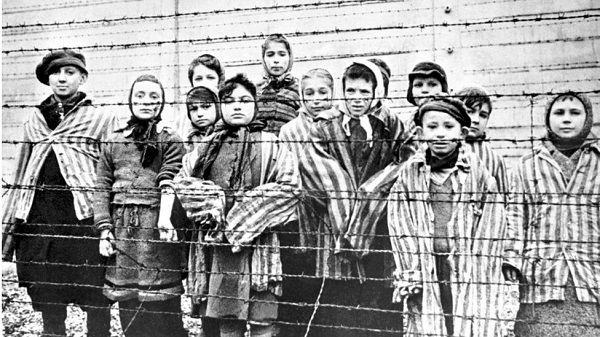Admin l Thursday, January 26, 2023
LAGOS, Nigeria – The world will mark International Holocaust Remembrance Day tomorrow, January 27. It is a symbolic date to commemorate the victims of Nazism.
The murderous Nazi terror targeted millions for reasons of biology, nationality, or political ideology. But few people know that the Nazis’ victims included thousands of Jehovah’s Witnesses, who suffered for their Christian faith.
Jehovah’s Witnesses, also then known as Bible Students, were “the only group in the Third Reich to be persecuted on the basis of their religious beliefs alone,” says Professor Robert Gerwarth.
The Nazi regime branded Witnesses “enemies of the State,” according to historian Christine King, because of “their very public refusal to accept even the smallest elements of [Nazism], which didn’t fit their faith and their beliefs.”
On religious grounds, the politically neutral Witnesses refused to give the “Heil Hitler” salute, take part in racist and violent acts, or join the German army. Moreover, “in their literature they publicly identified the evils of the regime, including what was happening to the Jews,” stated King.[1]
Witnesses were among the first sent to concentration camps, where they bore a unique uniform symbol—the purple triangle. Of about 35,000 Witnesses in Nazi-occupied Europe, more than one-third suffered direct persecution. Most were arrested and imprisoned. Hundreds of their children were taken to Nazi homes or reformatories. About 4,200 Witnesses went to Nazi concentration camps. Leading authority Detlef Garbe wrote: “The declared intention of the NS [Nazi] rulers was to completely eliminate the Bible Students from German history.”[2] An estimated 1,600 Witnesses died, 370 by execution.[3]
The Nazis sought to break Witnesses’ religious convictions by offering them freedom in exchange for a pledge of obedience. The standard Erklärung (issued beginning in 1938) required the signee to renounce his or her faith, denounce other Witnesses to the police, fully submit to the Nazi government, and defend the “Fatherland” with weapon in hand. Prison and camp officials often used torture and privation to induce Witnesses to sign.
According to Garbe, “extremely low numbers” of Witnesses recanted their faith.[4] “The thoughts of superiority and inferiority are entrenched in our minds,” writes Dr Femi Adedina of the Lagos State University of Education. “Rwanda is a good reminder that the seeds of creating a holocaust are in us. We only need a push before the bestiality in us rears its head.
To cage this, the reaction of the Jehovah’s Witnesses in Hitler’s Germany gives us a hint. Love those who hate you, treat them like yourself and return their hate actions with love actions. Then slowly hate will become a thing of the past in our minds and another event like the holocaust will not visit humanity again.”
Geneviève de Gaulle, a niece of General Charles de Gaulle and member of the French Resistance, said of female Witness prisoners in Ravensbrück concentration camp: “What I admired a lot in them was that they could have left at any time just by signing a renunciation of their faith. . . . Ultimately, these women, who appeared to be so weak and worn out, were stronger than the SS, who had power and all the means at their disposal. They had their strength, and it was their willpower that no one could beat.”[5]
The failure of Nazi coercion in the case of Jehovah’s Witnesses contrasts with widespread societal conformity to Nazi aims before and during the Holocaust. The nonviolent resistance of ordinary people to racism, extreme nationalism, and violence merits thoughtful reflection on this International Holocaust Remembrance Day.
More information about Jehovah’s Witnesses during the Holocaust can be found on jw.org:
[1] Responses Outside the Mainstream Catholic and Protestant Traditions (yadvashem.org), accessed on Jan. 3, 2022.
[2] Garbe, Detlef (2008). Between Resistance and Martyrdom: Jehovah’s Witnesses in the Third Reich. Madison, Wisconsin: University of Wisconsin Press, p. 521. ISBN 978-0-299-20794-6.
[3] “Number of victims persecuted in National Socialist Germany and in occupied countries,” Central Europe PID fact sheet.
[4] Garbe, pp. 287-288.
[5] Jehovah’s Witnesses Stand Firm Against Nazi Assault (vcf/-E), Watch Tower Bible and Tract Society of Pennsylvania, 1996.
